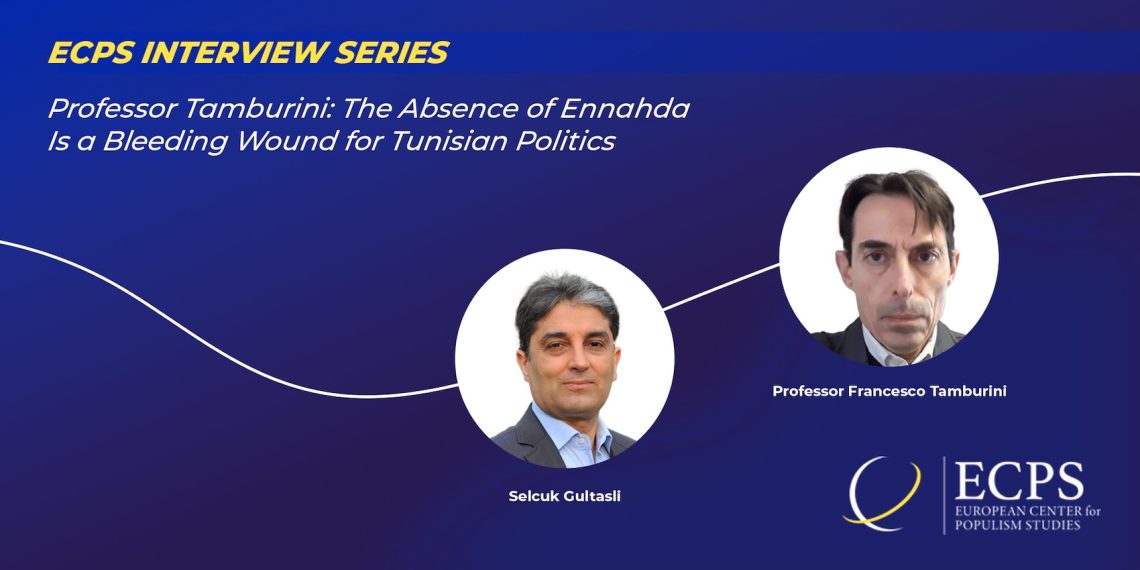The re-election of Kais Saied on October 6, 2024, has sparked debates about the future of Tunisia’s democracy and the legacy of the Arab Spring. With only 28.8% voter turnout, the result reflects a growing disillusionment among Tunisians. Professor Francesco Tamburini examines the wider impact of Saied’s actions, drawing comparisons between Tunisia’s path and other post-revolutionary autocratic regimes in the MENA region. He emphasizes that “the absence of Ennahda is a significant loss for Tunisian politics,” noting that the lack of a moderate Islamic voice has left a deep void in the country’s political landscape.
Interview by Selcuk Gultasli
The re-election of Kais Saied on October 6, 2024, has ignited discussions about the future of Tunisia’s democracy and the remnants of the Arab Spring. With a turnout of only 28.8%, the election result signals a growing disillusionment among the Tunisian people. As Dr. Francesco Tamburini, a Professor of Political Science at Department of Political Sciences, Università di Pisa, points out in his interview with the European Center for Populism Studies (ECPS) on Thursday, the problem is not necessarily one of legitimacy, but rather a reflection of widespread political disaffection. "The country is in a state of economic suffering, with young people struggling to find proper jobs. Tunisia is being suffocated by a relentless economic crisis that Saied cannot solve and at the moment, no one seems to be able to address it," Professor Tamburini notes.
A key theme of this interview is the absence of Ennahda, which Tamburini considers a "bleeding wound" for Tunisian politics. Following the 2011 Revolution, Ennahda and its leader, Rached Ghannouchi, had the opportunity to shape a vision of modern Islam combined with democratic principles. Yet, due to internal divisions and lack of experience, the party failed to govern effectively. Today, Ennahda has been sidelined and many of its intellectuals are now excluded from political life, largely due to Kais Saied’s declaration that the party is illegal. "The absence of Ennahda is a great loss for Tunisian politics. The lack of a moderate Islamic voice is a significant wound for Tunisian politics today," Professor Tamburini asserts.
In this wide-ranging interview, Professor Tamburini delves into the broader implications of Saied’s actions, comparing Tunisia’s trajectory with other post-revolutionary autocratic consolidations in the MENA region. He explores how Tunisia, once an exception in the Arab Spring, now faces the challenge of maintaining democratic institutions amidst growing authoritarian tendencies.


